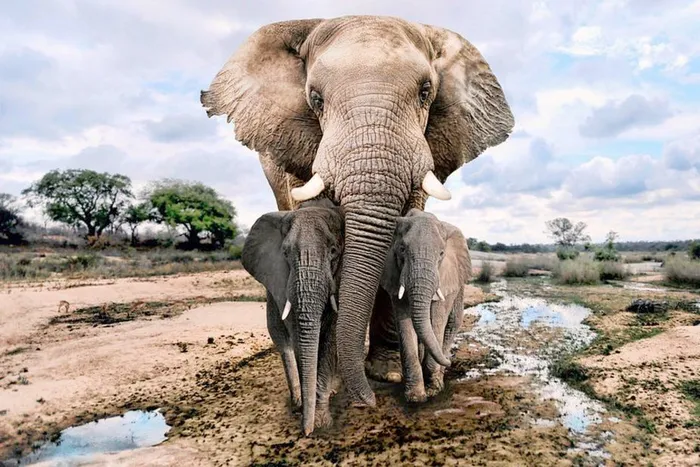
The goal of the Indaba is to ensure that elephants remain an enduring part of South Africa's landscape while benefiting people and promoting coexistence.
Image: File / The Conservation
South Africa is joining the global community in celebrating World Elephant Day, with this year's theme being 'Matriarchs and Memories'.
The country is home to around 44,000 African savanna elephants, with the population continuing to grow. Most elephants in South Africa live in government-protected areas, such as Kruger National Park and Mapungubwe National Park, while some are found in smaller, fenced reserves.
The Department of Forestry, Fisheries and the Environment is hosting the Southern African Elephant Indaba in KwaZulu-Natal, where policy developers, the wildlife industry, civil society groups, and communities will come together to find solutions to human-elephant conflict and promote the conservation of elephants.
Whilst re-imagining conservation in the country, guided by the four goals of the White Paper policy on Conservation and Sustainable Use of South Africa’s Biodiversity, that seeks to balance conservation with sustainable use, transformation, access and benefit sharing, the department aspires to ensure that thriving elephants contribute to improving the well-being of people and ecosystems simultaneously; and serves as a flagship for driving change towards “Thriving People and Nature.”
However, as elephant numbers and ranges expand, encounters between people and elephants have increased, particularly in rural communities living near protected areas. Human-elephant conflict can result in crop losses, damage to infrastructure, and in some cases, injury or loss of human life.
“South Africa’s success in recovering elephant populations not only offers hope for the species, but also brings difficult trade-offs in the context of the country’s developmental agenda and needs. As elephant numbers and ranges expand, encounters between people and elephants have increased, particularly in rural communities living near protected areas,” said Deputy Minister Narend Singh.
Ultimately, the goal is to ensure that elephants remain an enduring part of South Africa's landscape while benefiting people and promoting coexistence.
Related Topics: